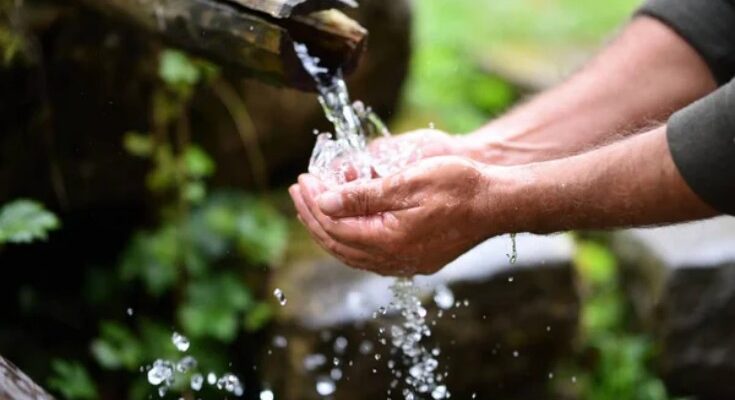For Osbeldys Díaz Hernández, a farmer of the Cooperative de Credits y Services (CCS) Jesús Menéndez, finding water on his farm La Agradable had been one of his greatest dreams for some time. The discovery would happen some time later. The purpose of his endeavor, according to Díaz Hernández, was “(…) to create a small organic garden on the farm where I will not use any chemicals, that is why I built the well and from there I can harvest at any time of the year (…)”.
The creation of a water supply to minimize the effects of the intense and prolonged drought is today one of the alternatives that many producers are finding in the face of the effects of climate change and the need to continue producing food.
“There are people who sometimes look for water with sticks, but in my case the man I looked for for this task marked where the water basin was, because nowadays not all farms have these veins through which water flows. Once we had marked the place where the water table was, we started the excavation.
Water, hope of a farmer
It was built six meters wide because everything was done manually and at the time of the filling everything was done manually so that it would be approximately five meters wide, in total the well has 35 cubic meters. When we reached the water table we continued digging until we found what they call the weeping wells because the objective is to irrigate crops on a farm, more water power is needed (…)”.
The process had different stages, “(….) when this work was finished we looked for the rocks that were also transported by oxen, these rocks the farmers themselves have on their farm, it is what they call dead stone, it is a lighter rock, we lowered it with ropes, the hoses all with a washer (…)”.
The search for water and the construction of wells in homes and farms is not a new alternative in our country. This option still needs to be used more by farmers in their properties as long as the characteristics allow it. A recommendation that Osbeldys suggests today “(…) telling farmers that they can do this on their farms is a benefit. Not everyone has the possibility of having the same water. There are places that can be done and we have the springs right there and nobody does it, waiting for the downpours to plant and today it is a necessity to build wells on the farms (…)”.




